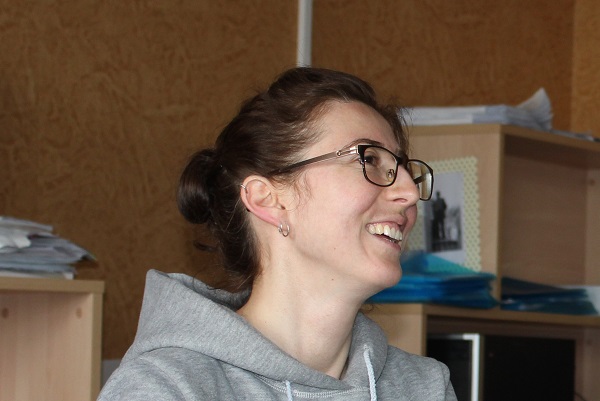60.5%
is the probability of winning for a football team that kicks first in a penalty shoot-out.

Centre for Youth Studies Expands Cooperation in Scotland
For the third time the Centre for Youth Studies (CYS) at the HSE Saint Petersburg has participated in the Dalglish Visiting Fellowship, a programme of international cooperation in which scientists from SRC ‘Region’ and the Centre for Youth Studies receive training at CRCEES (Centre for Russian, Central and East European Studies) in Glasgow. In 2014, Elvira Arif, a CYS researcher, won the only position that is provided annually for Russian researchers within the programme.
25%
of industrial companies are anticipating further price increases in the next 3-4 months for the products they manufacture.
Banks Hinder Industry Development
Despite its thriving banking sector, Russia's industrial production remains stagnant, as financial institutions are failing to support development in the real sector. Vassilisa Makarova, Associate Professor at the HSE's Department of Financial Markets and Financial Management (Faculty of Economics, St. Petersburg), and Andrei Krylov, postgraduate student at St. Petersburg State University of Economics, examined the controversial relationship between Russian banks and industry.
Philanthropy in Modern Western Society
Dr. Stefan Toepler of George Mason University (U.S.) is a recognized expert in research on the non-profit sector and the author of more than 70 publications in international journals. He will present a paper at the upcoming seminar of HSE’s Centre for Studies of Civil Society and the Nonprofit Sector (CSCSNS), which will take place on June 26 and focus on the topic, ‘New Forms of Public-Private Partnership in the Field of Philanthropy in the U.S.’. Dr. Toepler gave a special interview to the HSE news service.
Soviet ‘Science Cities’ Promote Small Business
Naukograds, meaning ‘science cities,’ focused largely on science in the Soviet period, but have since become aimed more at small business and business services in the post-soviet era, Denis Ivanov, a Research Fellow with HSE’s International Center for the Study of Institutions and Development, said in the paper, ‘Transition and Path-dependence in Knowledge-intensive Industry Location: Case of Russian Professional Services,’ which was presented at a joint seminar of HSE’s Laboratory for Labour Market Studies and the Centre for Labour Market Studies.
Business Connections, Not Friendships, Help with Career Advancement
In Russia, the role of connections in career success is important, but connections through friends or family and business connections can contribute to careers in different ways. While business connections help those who have already earned a good professional reputation, friends and family can give one’s career a headstart, but their role often stops at this, according to a team of researchers of the HSE's Centre for Study of Social Organisation of a Firm (CSSOF).
Doing Business: Is Russia Still the Place to Be in?
On June 19 the Expert and Advisory Board of the International Institute of Administration and Business held its regular meeting. They discussed the results of cooperation in 2013, 2014. Companies gave a summary of the master classes, and company consultancy projects for students on the Master in European Business programme and also discussed student internships. Jean-Luc Pipon, Managing Director, Head of Legal Division at Sberbank CIB was at the meeting and gave an interview to the HSE News Service about doing business in Russia today.
10 Myths on Civil Society Debunked
On June 20, the HSE’s Centre for Studies of Civil Society and the Nonprofit Sector held a seminar led by Lester Salamon, Director of the Center for Civil Society Studies at The Johns Hopkins Institute for Policy Studies and now Academic Advisor of the HSE’s International Laboratory for Nonprofit Sector Studies that was established earlier this year.

